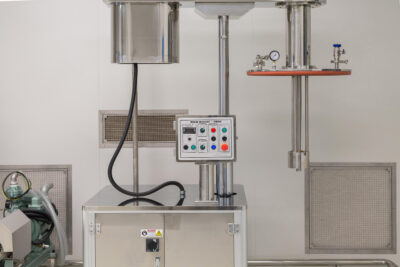In December 2021, laptops accounted for more than 54% of computer sales worldwide. That’s because laptops offer portability and independence from power sources that desktops simply can’t match.
Whether you’re looking to buy your first laptop or replace your trusty companion with a newer model, you’ll find an overwhelming array to choose from nowadays.
Online customer reviews can help you sift the good from the bad, but how do you know which one is best for you? Here’s your guide to purchasing a laptop that matches your requirements.
Choose an Operating System
When deciding on a laptop, you can select between one of four operating systems. The one you select depends mainly on your personal preferences, but each one has its pros and cons.
These are the main operating systems available today:
Windows
This is the most flexible operating system, compatible with all laptop models, and currently installed on over 1.3 billion computers worldwide. It’s compatible with the largest variety of laptops and works with most apps and programs.
Laptops with the Windows OS offer plenty of features including dual graphics chips, touch screens, and fingerprint readers. Many of these machines come with Windows 10 pre-installed, although the latest ones have Windows 11, released in 2021.
Most users are familiar with the Windows OS, and these types of computers and laptops suit most applications. There’s no better OS for those who want to use their laptop for gaming.
Apple Computers’ macOS
All MacBooks come with this operating system, which offers similar conveniences to Windows 10. This OS also offers access to several aspects unique to Apple users, like Apple Pay, Siri, and the ability to unlock your laptop with an Apple Watch.
MacBooks don’t have touch screens, but their iPad tablet does. Apple’s latest laptop features the M1 chip, which delivers outstanding performance and enhanced storage.
The MacBook Pro suits low-end gaming, but you’ll need to optimize it for hard-core gaming. A scarcity of games designed for the macOS program is another stumbling block if you want to use your MacBook for PC games.
Chrome OS
Designed by Google, Chrome OS is a Linux-based OS, that’s lightweight and fast. It operates mainly from apps that you download from the Chrome store.
Chromebooks lack the expensive hardware featured in ordinary laptops, so they’re among the cheapest types of laptops available today.
The interface looks and acts a lot like Windows, and these laptops work perfectly well for low-end users. They’re popular among students and an excellent choice if your needs comprise little more than emailing, internet browsing, streaming, and chatting online.
The latest Chromebooks are compatible with most Android apps, which adds another level to their versatility.
Linux OS
Linux refers to a family of free operating systems like Ubuntu, Fedora, and Debian. These systems work well on PCs and various other devices like servers, mainframes computers, and mobile devices.
They’re a top choice for those who dislike mainstream operating systems or prefer a simplified, streamlined OS.
Laptop Components to Consider
Your laptop’s inner mechanics greatly affect its functionality and performance. These are some aspects to keep in mind in your search for performance, power, and versatility:
Onboard Processors (CPUs)
Your laptop’s CPU is the command center for all the other components. It controls how you interact with the tech and how quickly it responds to your commands.
Intel and AMD Ryzen are the most common types of processors found in laptops today. Intel has long ruled the roost when it comes to reliability and performance, but you’ll find many new PCs featuring the Ryzen platform, nowadays.
It’s a tough call choosing between these two processors, particularly as they continue to enhance their speed and reliability while reducing costs at every turn.
At the moment, Intel has a slight advantage when it comes to high-end performance and productivity, but it’s only a matter of time before Ryzen catches up again.
Whichever you prefer, your main consideration is selecting the latest version of either platform. Go to this site for more information about the latest Intel Evo platform, or visit the AMD website for more information on their latest technology.
Speed and Storage
After the performance aspects, you’re probably most concerned with how much your new laptop can store in its memory. After all, you need space for all your documents, media, and programs.
You can select from two types of drives when purchasing a laptop, or opt for a hybrid model that harnesses the best properties of both. These are your options:
Solid State Drives (SSDs)
SSDs are the more modern of your two drive options. They’re much faster than hard disk drives.
That’s because they use a superfast flash memory comprising individual memory cells that store bits of information. They also boast better shock resistance than HDDs, but they can’t store as much information, and they’re more expensive.
Hard Disk Drives (HDD)
Hard disk drives are the original PC storage mode, using a moving read/write head to record and access data on a mechanical platter.
They’re great for optimizing your storage space.
Random Access Memory
Random-access memory is a type of short-term memory that has a major effect on your computer’s speed. You should opt for a minimum of 4 GB RAM if you use your laptop for basic computing.
If you perform very complex calculations or play data-heavy games, you’ll need at least 16 GB.
Purchasing a Laptop By Size and Weight
Laptop technology has evolved rapidly since the first bulky, heavy machines came out. Nowadays, you can find small and large laptops that cater to your exact preferences.
These are the main groupings of modern-day types of laptops:
Notebooks
Notebooks are so widespread that the term has become synonymous with the word, ‘laptops’. The usual dimensions for these laptops are around 14.2” by 9.6” by 0.77”.
In the strictest sense, this category refers to laptops with 15.6” screens, that weigh between four and nine pounds. There’s a notebook available nowadays for every type of daily use, and they offer great diversity when it comes to RAM, processor speed, storage, and price.
They suit students, office workers, and are great for word processing, email correspondence, streaming videos, and browsing the internet.
Ultrabooks
Ultrabooks are the lightweight, slim version of notebooks and can weigh as little as 2 lbs.
They still boast good size screens with thin bezels, a long battery life, and stringent security features. Many of them boast modern extras like in-built chipsets, Wi-Fi 6, and Thunderbolt ports.
Designed for travel, these devices have durable casings, and they’re a popular choice for those who travel for work as well as college students.
2-in-1 Laptops
These laptops also go by the name, ‘convertibles’ and they take things a step further when it comes to portability. These designs enable you to use the device as either a laptop or a tablet.
They have touch screens and PC operating systems. You can either detach the keyboard or fold it out of the way when it’s not in use.
These laptops are around 12.90” x 9,17” x 0.79″ in size and can weigh less than 2 pounds.
Desktop Replacement Laptops
Designed to fulfill the role of a desktop computer, these bulky, heavy devices can weigh as much as 12 lbs. They’re not optimized for portability, but do boast a good battery life.
Desktop replacement laptops feature many ports for attaching peripheral conveniences and are among the most expensive types of laptops. Gaming and business laptops usually fall into this category.
If you want to use data-heavy programs to work on advanced graphic designs, edit huge volumes of photos, or perform complex analytics, these are the laptops you need.
These best varieties of these laptops have Thunderbolt ports, Wi-Fi 6, outstanding graphics, and efficient cooling systems. They’re the only option for avid gamers.
Business Laptops
Many business laptops feature the most advanced technology, so you can work with complicated presentations, vast volumes of data, and complex schematics.
Some extra features include:
- Superior video playback
- Extra-fast SSD (solid-state drives)
- Full HD capability
- Cell-phone connectivity
- Durable, liquid-resistant aluminum chassis
Top-of-the-range business laptops have huge displays with brilliant color accuracy and upgraded security features.
Gaming Laptops
These are among the most powerful, advanced, and expensive laptops available. They have discrete graphics cards and Haswell processors to cope with the demands of power-hungry gaming software.
These features also work well for the above business applications. If you handle physics simulations or 3D modeling, a gaming laptop will suit you better than a business laptop.
The main emphasis with gaming laptops is on keeping the hardware cool, so they have extra cooling apparatus that makes them heavy and bulky.
Most gaming laptops feature:
- High refresh-rate displays
- Full HD screens
- Additional hard drives
- Abundant RAM
- Best ergonomic keyboards
- RGB lighting
All these factors work together to enhance gaming or working on these advanced devices.
Maximizing Your Search for a Laptop
If you want the best deal when purchasing a laptop, keep these criteria in mind when comparing laptop prices and specs. One final tip is to start your search toward the end of the year.
That’s when manufacturers release their newer models, so you’re bound to find plenty of special offers on the past year’s offering. It’s the best way to get the most value for money when buying a laptop.
Are you curious to discover other ways tech can enhance your life and business? Keep browsing our blog for more of the best tech tips and information.










